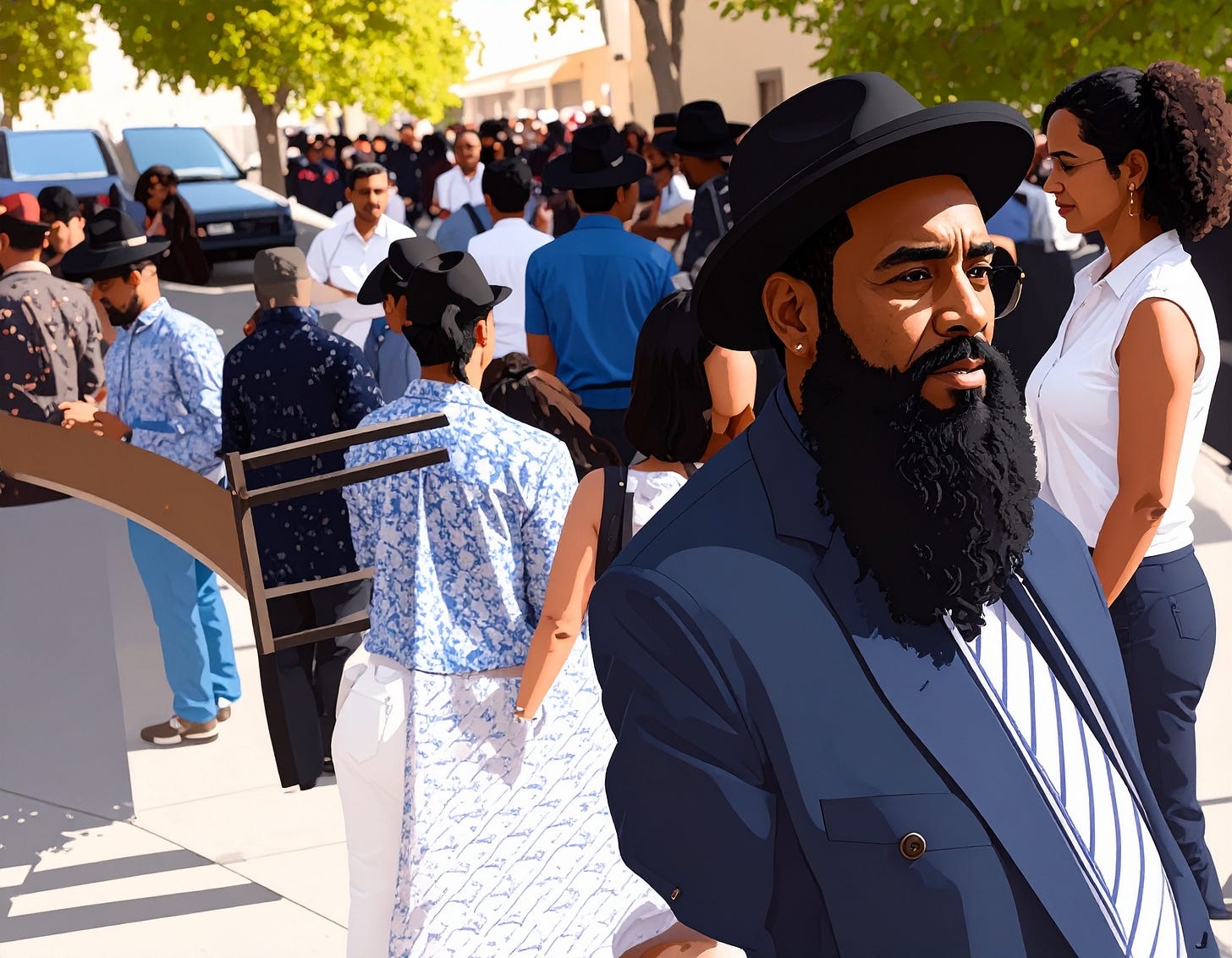Standing Silent for the Siren
What is the charedi objection?
Last week in Israel there was a siren for Yom HaShoah. Tonight and tomorrow are the sirens for Yom HaZikaron.
Beit Shemesh Chadashot is a news agency that sends out reports via WhatsApp. It’s charedi, but modern charedi. Whereas the regular charedi approach is to entirely ignore the siren, modern charedim have a different approach. Before the siren, they sent out a message reminding people about it, and urging them to respect sensitivites by stopping what they are doing and reciting Tehillim or saying mishnayos in memory of the victims.
Now, the obvious question is, why can’t they respect the sensitivities of the day and the victims by doing what everyone else does - being silent and thinking about them? If you’re desperate to spend two minutes saying Tehillim, you can certainly find another two minutes in your day to do so!
The standard answer is that standing silent during a siren is not part of Jewish tradition; rather, it’s chukkas hagoy and thus prohibited. Yet in a previous post I’ve pointed out that it’s nothing of the sort. Being silent in the face of tragedy is exactly what Aharon HaKohen did in last week’s parasha. Sirens are sounded for Shabbos every week. And standing in silent contemplation while being stirred by a piercing blast is exactly what we all do on Rosh HaShana.
And even if didn’t have a Jewish origin, so what? From the Rema to Rav Moshe Feinstein, rabbinic authorities rule that any practice which has a sensible rationale is permitted to be adopted, even if it originates with non-Jews. And it’s not as though the people who avoid the siren are so meticulous about avoiding practices that originate with non-Jews, even if they have pagan origins; these are the same people who tend to be enthusiastic about kapparos. There’s plenty of things that Jews do today which have no traditional basis - such as learning Torah on behalf of people who have passed away, which is actually a completely novel concept with no basis in classical Judaism!
So, claiming that standing for the siren is prohibited because it’s goyish or because it’s untraditional is certainly not a valid claim. But what I’m more interested in is whether it is actually their reason anyway. I don’t think it is.
Sure, it might superficially be the reason; they’re probably not aware of all the arguments I present above. But it’s not as though they particularly care to find out. They might observe lots of different stringencies, but they don’t care to find out if schlissel challah has pagan origins.
So what’s the real reason why they don’t stand silently during the siren like everyone else does? The real reason is precisely because that’s what everyone else does. The problem is not that it’s goyish; the problem is that it’s Israeli.
(I am deliberately not writing “Zionist.” The beliefs of early Zionist ideologues are irrelevant to pretty much everything. The point is that it’s something which everyone else in Israel does.)
As I’ve noted in previous posts, being charedi is fundamentally about being separate from everyone else. That brings all the benefits of having a special identity. But it also means that you don’t participate in national ceremonies or concerns. You don’t even recite a MiSheberach for soldiers, just a vague Tehillim/ Acheinu for the matzav. And if you do acknowledge the siren, either because it’s something that might happen while you’re in the street and you don’t want to make charedim even more unpopular, or because it’s a very significant and moving thing, then you do it in a different way. To paraphrase a declaration made by a charedi leader some years ago: if the government decreed that everyone should commemorate the victims of the Shoah or Israel’s wars by learning Bava Kama, charedim would learn Bava Basra.
It’s understandable. But it’s also silly and sad. And it’s symptomatic of the much bigger problem, which is that being separate from everyone else means not particularly caring that there’s a war going on Israel that is demanding enormous sacrifices from everyone else. If you’re American charedi, it means that you don’t go to DC to help rally political support; if you’re Israeli charedi, it means that you don’t serve in the IDF or help in any other way.
Such isolationism might be tolerable for a very small group. But it’s not tolerable for a huge one.
(See too this important post: The Charedi Secession From Klal Yisrael)
Praying for the recovery of Eyal Matan ben Yehudis Chana (Sterman) of Efrat, who is in critical condition after he was moser nefesh to save a fellow soldier.




I think that you also have to include elitism. Whatever the others do, we know better and do things better. We have nothing to learn from others; they should learn from us. The way to express that is to show that while they do their silence thing, we do even better and say Tehillim because that will help better.
In 2011, when a local police officer, Christopher Matlosz, as killed on duty in Lakewood, the RY urged the frum community to line the streets and pay their respects out of הכרת הטוב. So while the procession made its way down the street playing “Amazing Grace”, the yeshiva community stood in silence.
But as others have commented here, it’s only Kosher if the Gedolim think of it first. You can’t dictate to them what is moral and ethical.
https://www.theyeshivaworld.com/news/headlines-breaking-stories/81351/lakewood-roshei-yeshiva-urge-bnei-hayeshiva-in-signed-letter-to-participate-in-police-funeral.html